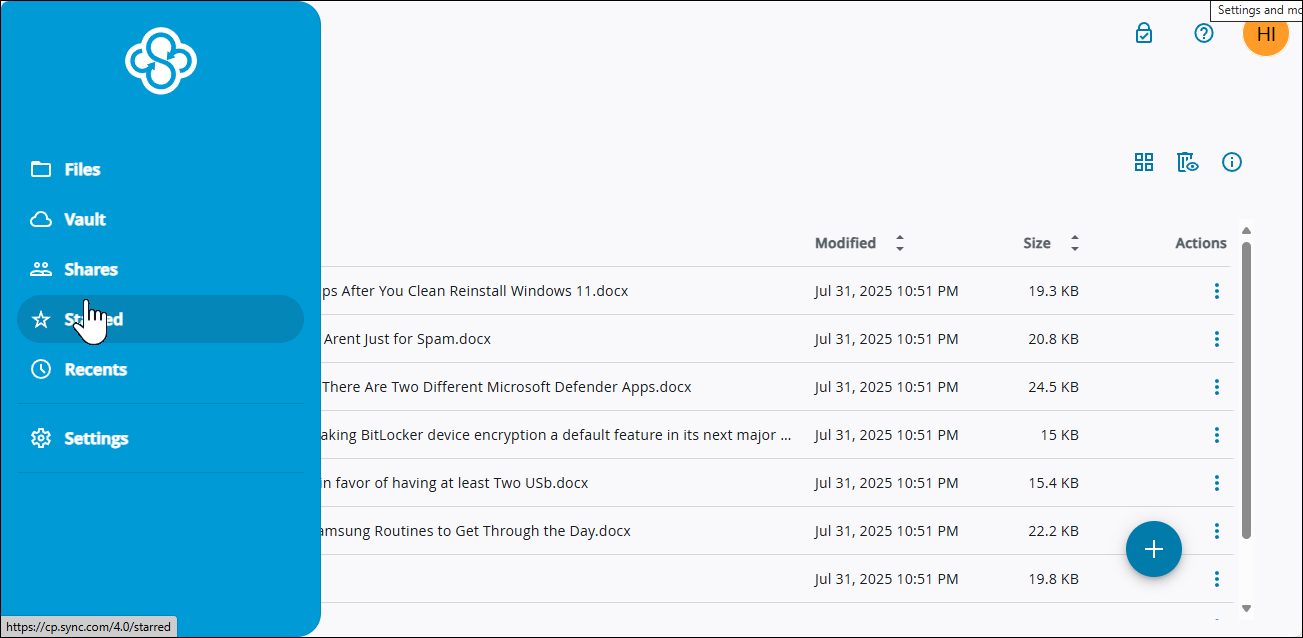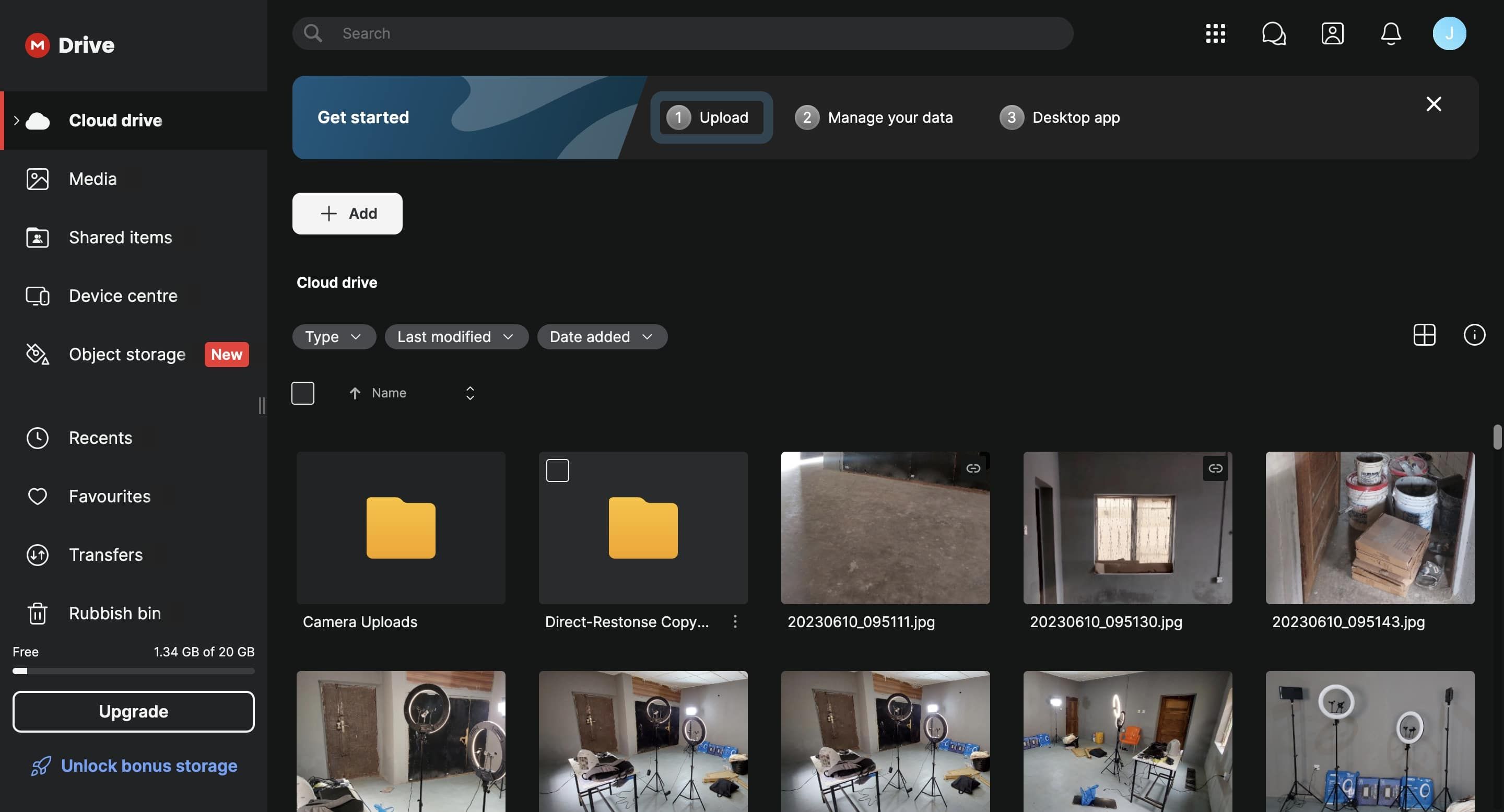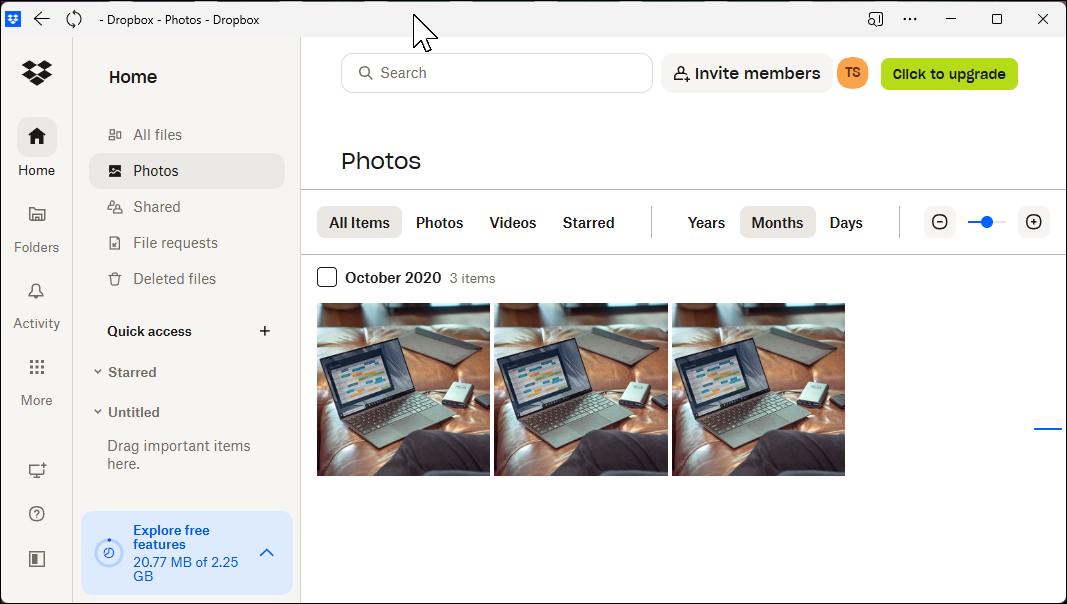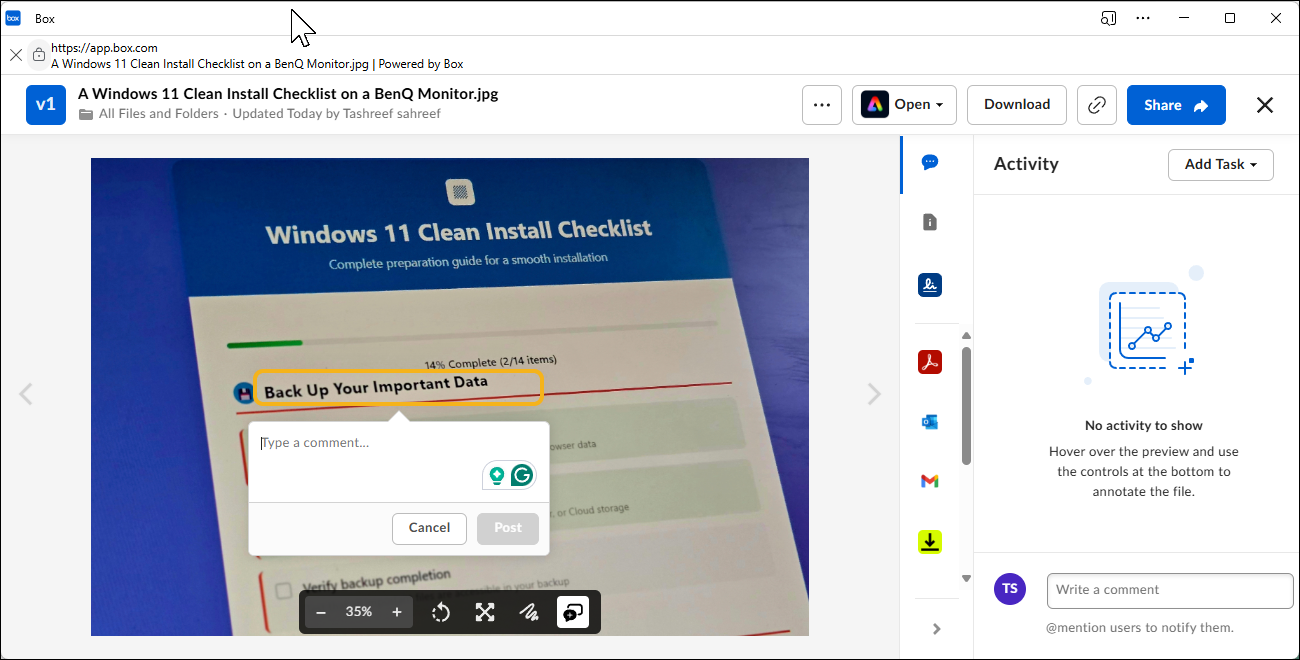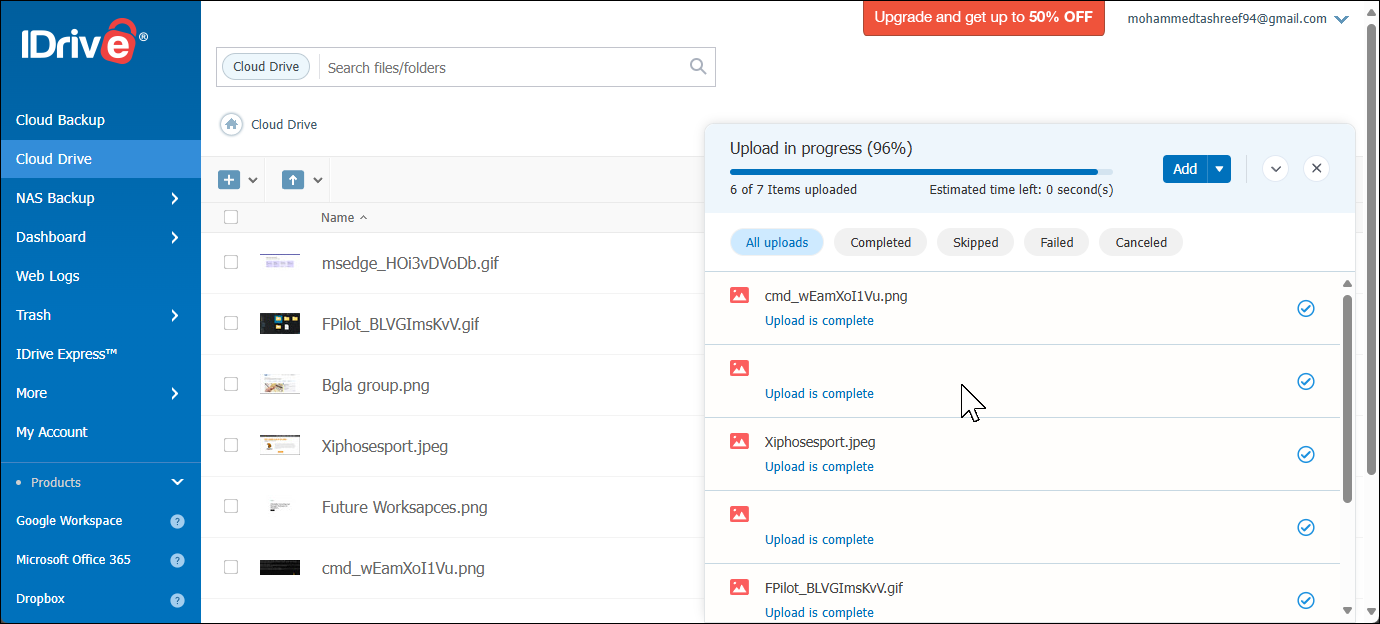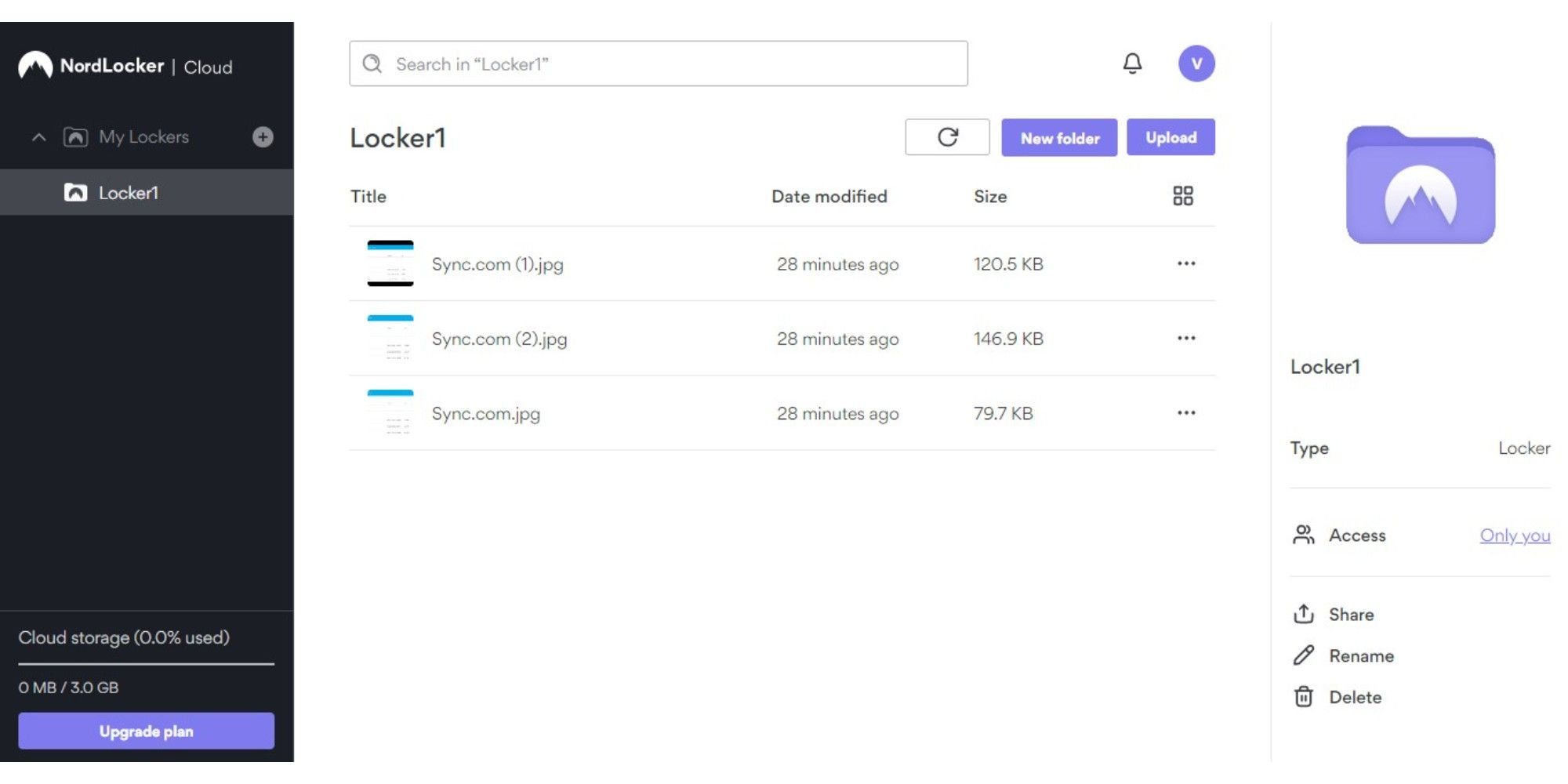Paying more doesn’t always mean getting more. Google One charges $99.99 a year for 2TB of storage, but plenty of cloud storage services offer better value for your money.
If you’re in the Microsoft ecosystem (Windows OS, Office apps, Outlook and OneDrive), nothing beats Microsoft 365 Personal/Family plans. For $69.99 annually, you get 1TB of storage plus the full Office suite—Word, Excel, PowerPoint, Outlook, and more. Compare that to Google One’s 2TB plan at $99.99 yearly, which only includes basic Google Workspace apps.
OneDrive has deeper integration with Windows machines. It syncs smoothly with File Explorer, letting you access cloud files like local ones. You can edit Office documents directly in the browser or desktop apps without downloading copies first. The Files On-Demand feature saves local disk space by showing all your files but only downloading them when needed.
Microsoft also throws in extras like ransomware detection and file recovery. If malware encrypts your files, OneDrive can restore them to a previous state. The Personal Vault adds another security layer for sensitive documents, requiring additional authentication to access.
For families, Microsoft 365 Family offers far better value—up to six people get their own 1TB of storage each, totaling 6TB for $99.99 per year. In contrast, Google One’s family plan shares the same 2TB pool across all members, offering far less individual storage for the same price.
If privacy is your top concern, Sync.com is a solid pick. It takes a security-first approach to cloud storage, offering strong syncing, easy file sharing, and zero-knowledge encryption. Your files are encrypted on your device before upload, so only you can access them—not even Sync.com can read your data.
The free tier gives you 5GB to start, with paid plans starting at $8 per month for 2TB. That matches Google One’s pricing but includes better privacy protection. File sharing becomes more secure, too—you can set passwords and expiration dates on shared links; features Google One reserves for workspace accounts.
Sync.com keeps version history for 180 days on paid plans so that you can recover accidentally deleted or changed files. The service works across Windows, Mac, iOS, and Android, with selective sync to manage which folders stay on each device.
For business use, Sync.com meets HIPAA requirements for healthcare data and offers data residency options for organizations needing to keep files within specific countries.
If you care more about having massive cloud storage space, privacy, and secure, flexible sharing than real-time document collaboration, MEGA is one of the best-value mainstream cloud platforms you can choose.
MEGA gives you more free storage than most. It starts with 20GB at no cost, beating Google’s 15GB and the typical 2–5GB from other providers. If you need some serious space, MEGA scales up to 20TB personal plans with a huge 240TB monthly transfer quota for $28.59/month. That crushes Google One’s 2TB maximum.
MEGA built its reputation on zero-knowledge encryption. Every file gets encrypted using your password-derived key before leaving your device, keeping your data completely private. This privacy-first approach extends to sharing, too. You control access with passwords, expiration dates, and download limits.
It also handles large files with ease, offering fast speeds and a simple drag-and-drop interface. The paid plans offer good value—400GB for $4.99 a month or 3TB for $9.53. Higher-tier plans bundle in extras like MEGA’s VPN, password manager, and even bundles secure chat and video calling for full privacy coverage.
Dropbox was one of the first to get cloud storage right, and despite cutting back on free storage, it remains one of the best in the cloud space. Syncing happens in an instant, and files appear on other devices within seconds of saving.
Dropbox has the lowest free tier among its peers, offering just 2GB—but its Plus plan delivers solid value despite the slight premium over Google One. For $9.99/month, you get 2TB of storage along with features like Smart Sync, which shows all your files in Explorer or Finder without using local space. The Rewind feature lets you roll back your entire account up to 30 days—handy if you ever delete something by mistake or get hit with ransomware.
Dropbox offers more than just storage. Its Paper feature gives you a simple way to work together on documents, while Capture makes it easy to record and annotate your screen. There’s also a basic password manager and built-in e-signature support through HelloSign.
If you work with design or media files, Dropbox handles previews well. You can view CAD files, Photoshop documents, and videos directly in your browser, and even add comments or annotations without needing to download them.
Box is a bit different from the conventional cloud storage services in this list because it focuses more on control and collaboration than just storage space. The Personal Pro plan costs $10 per month for 100GB, which may seem steep, but it includes enterprise-grade features that make it worthwhile for professional use. Although Box is built with business needs in mind, it still offers a generous 10GB free tier for individual use.
File permissions in Box beat Google One’s basic sharing options. You can set seven different access levels, track who viewed files, and require a login for access. Watermarking and download prevention help protect intellectual property when sharing with clients.
The Box Notes feature creates a shared workspace for real-time collaboration. Unlike Google Docs, it integrates directly with your stored files, so you can reference and embed content without switching apps.
If you need cloud storage to back up large amounts of data without the fancy collaboration features, it’s hard to beat iDrive. The service offers exceptional value with plans starting at just $2.95 per year for 100GB or $9.95 per year for 500GB—rates that cost less annually than most competitors charge monthly.
Even their premium personal plan provides 5TB for $69.50 annually—much less than Google One’s 2TB option. You can back up unlimited devices, including computers, phones, and tablets.
iDrive excels at automated backup. Set folders to monitor, and iDrive continuously protects new and changed files. Versioning keeps up to 30 previous versions, protecting against ransomware and accidental changes. The timeline view lets you restore your entire system to any previous date.
iDrive’s web interface works like traditional cloud storage for accessing files anywhere. You can also share links, include password protection, and set expiration dates. The mobile apps support photo backup and document scanning with OCR.
For an extra fee, iDrive Express ships you a physical drive for initial backup or recovery. If you have multiple terabytes of data to upload, you can request this service where iDrive sends you a temporary storage device, you copy your data to it, and return the drive for them to upload to your account. Google offers no comparable service for large-scale transfers.
NordLocker fits naturally into the Nord ecosystem, especially for those already using NordVPN. It comes bundled with the Complete and Ultra plans at no extra cost and includes 1TB of encrypted storage. NordLocker is also available as a standalone service if you only need secure cloud storage without the rest of the Nord bundle.
Like NordVPN, NordLocker puts security first with zero-knowledge encryption, ensuring your files are encrypted before leaving your device. You can access your storage through desktop and mobile apps or use the web interface. Just drop files into a locker to protect and sync them across devices instantly.
The free plan offers 3GB, but sharing encrypted files is only available on paid plans. If you’re buying storage separately, pricing starts at $2.99/month for 500GB, and 2TB costs $7.99/month when billed annually.
Better value means finding what truly fits your needs—not just sticking with what’s familiar. Google One works well if you’re deep into the Google ecosystem and need basic shared storage, but if you rely on cloud storage for productivity, privacy, or backups, other services offer a better fit. Most of these services offer free tiers, so you can test what works best before making the switch.

